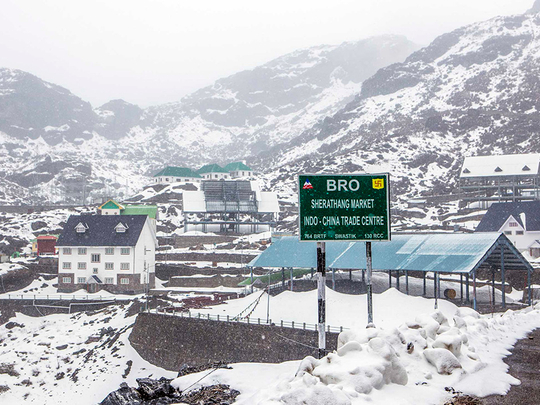
New Delhi: Following concerns flagged by intelligence agencies, the Indian government on Monday refused to budge on its stand of expelling three journalists of China’s official news agency Xinhua by refusing to renew their visas, raising concerns of a tit for tat visa war.
The decision follows reports that the journalists reportedly made unauthorised visits to Tibetan refugee camps.
The visas of the Chinese journalists — Delhi-based Xinhua Bureau Chief Wu Qiang and two reporters in Mumbai Lu Tang and She Yonggang — are expiring at the end of this month. All three had sought extension of their stay by a few months till their successors arrive.
However, the Ministries of Home and External Affairs denied permission for their extended stay in India.
Importantly, Wu had been staying in India on extended visa for over seven years. His two colleagues had also been given several visa extensions.
“The visas of these three journalists had expired four months ago. We had given them several fortnightly extensions on the understanding that their successors would be sent shortly. They were finally asked to collect their passports and leave the country by July 31, 2016,” highly placed sources in the Home Ministry informed Gulf News on condition of anonymity.
The sources claimed the step was prompted by adverse reports from intelligence agencies about the trio who were suspected of impersonating other people and visiting restricted facilities in the country under assumed names.
Two of the three Chinese journalists who have been denied visa extension visited Tibetan settlements in Karnataka late last year but did not reveal their identity. Thereafter, the government decided not to renew their visa.
Established in the 1960s, five Tibetan settlements in Karnataka house around 40,000 Tibetans. Two of these settlements are in Bylakuppe and one each in Mundgod, Hunsur and Kollegal. No foreigner or foreign aid agency can visit these or any Tibetan settlement in India without a Protected Area Permit (PAP), which is issued by the Home Ministry and can be applied online.
“These journalists had not taken the Protected Area Permit for visiting the camps but their real identities were detected when they reached there. That was a serious concern,” the sources added.
The journalists were not available for comment on the allegations.
Lu Tang, who studied at Jawaharlal Nehru University during her tenure in India, had also sent a representation to External Affairs Minister Sushma Swaraj last week, requesting her to revise the government’s decision.
This is probably the first time that India has asked Chinese journalists to leave the country in this manner.
Xinhua is the official and most influential news agency in China. Its president is said to be a member of the Central Committee of the Communist Party of China.
India and China share a disputed Himalayan border over which they fought a monthlong conflict in 1962. The event is expected to further strain ties between India and China, which have seen considerable tension in the last few months.
In April this year, India had expressed its unhappiness over China’s decision to place a technical hold on its bid to have terror outfit Jaish-e-Mohammad chief Masood Azhar banned by the United Nations’ Taliban 1267 committee. The relationship saw its biggest strain more recently over the Nuclear Suppliers Group (NSG) meeting where India accused China of blocking its membership bid.
India, a non-NPT (Non-Proliferation Treaty) signatory, singled out China for creating “procedural hurdles” to block its membership. China has stood its ground saying that NPT remained the cornerstone for international non-proliferation regime.
Meanwhile, a state-run daily of China has warned India of “serious consequences” over the refusal to extend visas to the three Chinese journalists.
“Speculation is swirling that India is taking revenge against China for the latter’s opposition to India joining the Nuclear Suppliers Group. If New Delhi is really taking revenge due to the NSG membership issue, there will be serious consequences. By opposing India’s NSG membership, China is not being disrespectful to India because it obeys the rule that all NSG members are required to be signatories to the Non-Proliferation Treaty,” the editorial in the Global Times said.
However, the sources in the Indian Home Ministry insisted on Monday that the expulsion of the journalists had nothing to do with China’s role at the UN.
India is home to thousands of Tibetan refugees who fled their Himalayan homeland when China sent in troops in 1951 to quell an uprising.
Many of those who took flight — including Tibetan spiritual leader the Dalai Lama — settled in and around the Indian northern town of Dharamsala where a Tibetan government in-exile functions.
Others live in designated settlements elsewhere in the country that are off-limits to foreigners, such as the one in Karnataka which is home to around 40,000 Tibetans.
The exile community held elections in April for the leadership of the Dharamsala government — an organisation that China has consistently refused to recognise.
India’s hosting of the exiled government is a long-running thorn in relations between the two neighbouring countries.
Often prickly tensions between the world’s two most populous countries have also been inflamed recently by China’s blocking of India’s attempt to join a 48-nation nuclear trade group.












